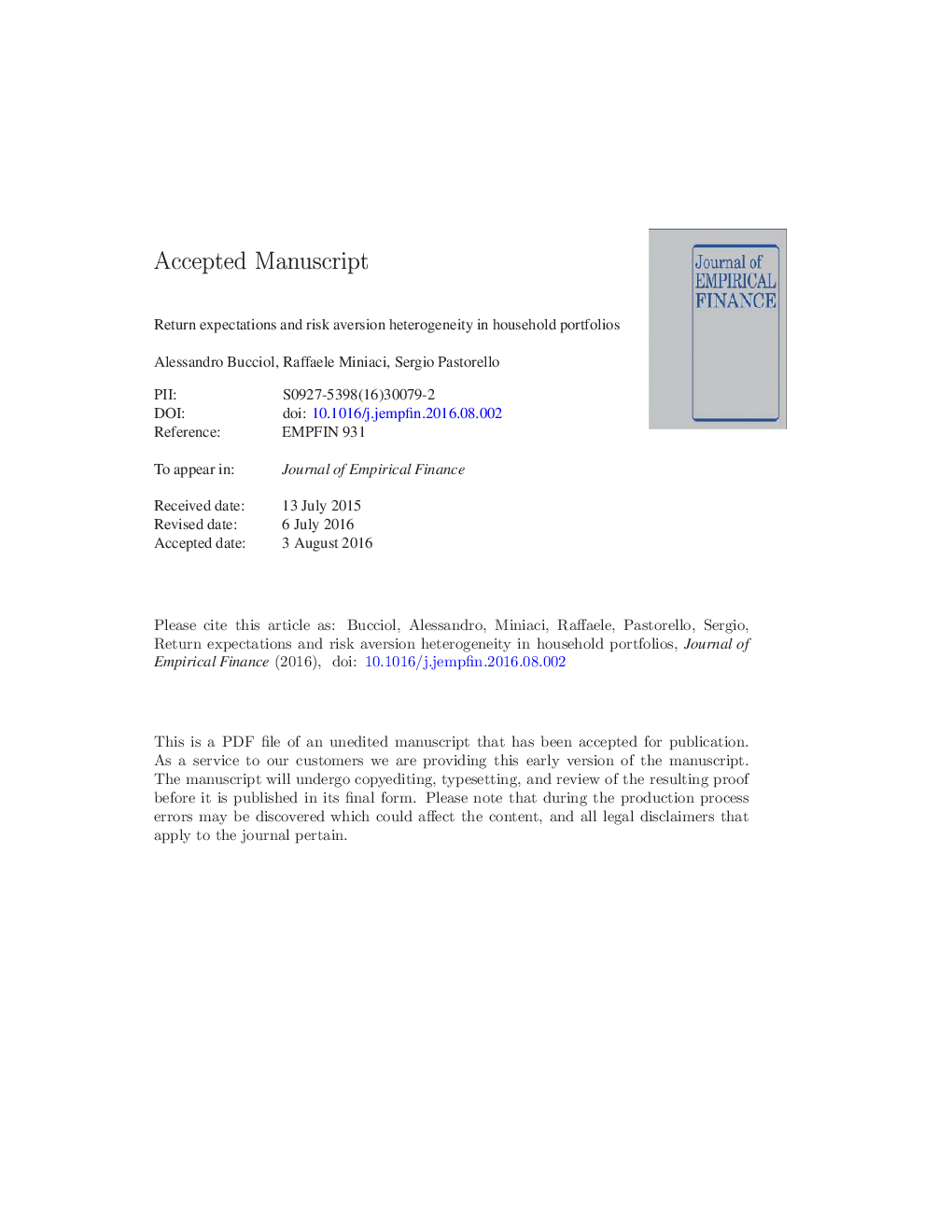| Article ID | Journal | Published Year | Pages | File Type |
|---|---|---|---|---|
| 5100301 | Journal of Empirical Finance | 2017 | 45 Pages |
Abstract
We develop a structural econometric model to elicit household-specific expectations about future financial asset returns and risk attitudes by using data on observed portfolio holdings and self-assessed willingness to bear financial risk. Our framework assumes that household portfolios are subject to short-selling constraints in stocks and bonds, and that financial investment decisions are taken conditional on real estate and business wealth. We derive an explicit solution for the model, and estimate its parameters using the US Survey of Consumer Finances from 1995 to 2013. The results show that our modified mean-variance model fits the data adequately, and that the demographic, occupational and educational characteristics of the investors are relevant in shaping risk aversion and return expectations. In contrast, wealth, income, and past market performance have limited impacts on expectations and risk aversion.
Related Topics
Social Sciences and Humanities
Economics, Econometrics and Finance
Economics and Econometrics
Authors
Alessandro Bucciol, Raffaele Miniaci, Sergio Pastorello,
